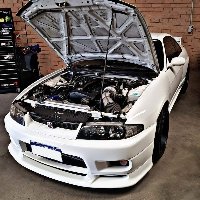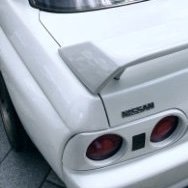Does the Brake pad touch the disc when u jack the car up?
Announcements
-
Similar Content
-
Latest Posts
-
So many people don't notice it, as batteries decay slowly over time. Two big reasons people end up noticing and needing to replace batteries: 1) The cold weather. The cold not only makes it harder to turn the engine for a few reasons, but it also increases the batteries internal resistance. So this means you need MORE power to turn a colder engine, AND the battery has a lower limit on how much current it can provide. 2) Something gets modified/altered/added in the wiring, typically an aftermarket accessory, like a dash camera, or an alarm etc, and this adds a small amount extra onto the battery, and pushes it over the edge in its failing days. But if you hadn't have read this thread, and just pushed through, chances are you might have made it through this winter, just. But come next winter, it would have been kapoot. But the fact you changed it out now, means you've instantly noticed how much nicer it is for starting, and will be less worry for you that the engine won't start now.
-
By soviet_merlin · Posted
Holy shit, I'm glad you brought up the battery issue and I'm glad I asked about measuring it. Old battery was at a healthy 12.82V in the morning with the car turned off. Removed the fuel pump fuse, clamped the multimeter on at min/max/average and cranked for ~3 seconds. It dropped down to 8.30V. So yeah, not surprising it struggled that much. Picked up a fresh battery from supercheap and it's ridiculous. Haven't done a cold start yet, but man, even with a warm start the difference is night and day. I can't believe I lived with this for so long. Just blamed it on it being an old modified car. Went with Century because convenient. If they are shit it'll be a future me problem. But just in case I set up a reminder for 30 months - 8 weeks to check on the battery state and get a warranty replacement if necessary. -
By Dose Pipe Sutututu · Posted
There's another sensor that sits inside the evaporator, that's a C U N T to get to, but can be done without removing the entire unit. Usually it's not the sensor that dies but the actual capacitor in the circuit (part of the plug that dies). -
Putting the climate control CU into diagnostic mode is independent of the ECU. You just have to do the dance prescribed in the manual. No, I do not know what the dance is. I have an R32, so use the dance in the R32 manual. On older cars, I would have said "no, the ECU should not affect whether the A/C works".... but for an R34 that might be wrong. I don't recall the detail, but there was extra mods required to make my R32 A/C work against the R34 ECU. The R34 ECU apparently gets involved in the running of the A/C more than earlier cars did. Theoretically, if the PFC is a true plug in, then it should just work the way that the original ECU does - wrt A/C. But there's always scope for them to have not cared. Nope. Pressure switch out = getting the fridgey out to pump the gas out before pulling the switch. The switch really cannot sense gas pressure unless it is up against the gas.
-







Recommended Posts
Create an account or sign in to comment
You need to be a member in order to leave a comment
Create an account
Sign up for a new account in our community. It's easy!
Register a new accountSign in
Already have an account? Sign in here.
Sign In Now